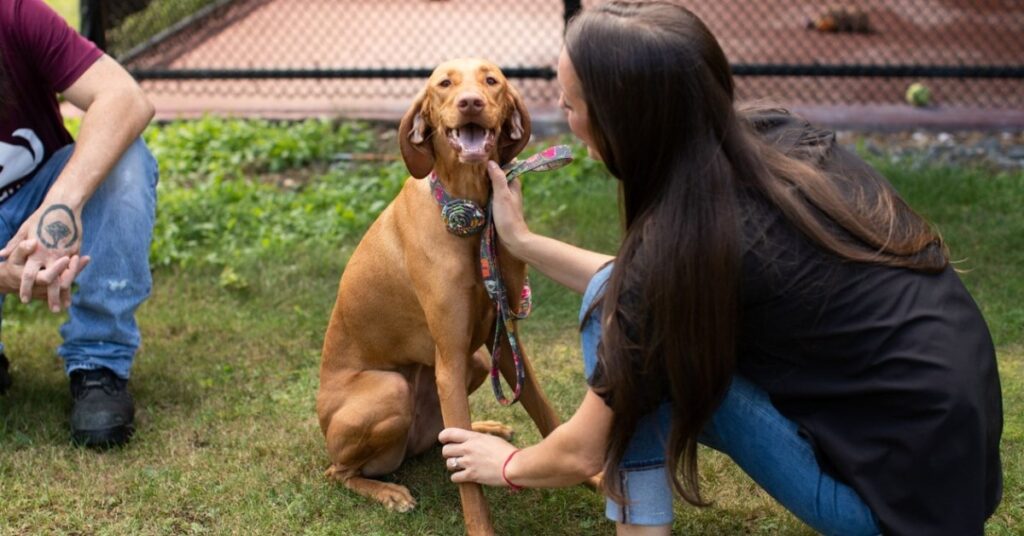The Monadnock Humane Society (MHS) stands as a pillar of compassion and advocacy for animals in the Monadnock region of New Hampshire. Established with a mission to provide shelter, care, and rehabilitation to abandoned, abused, and neglected animals, MHS has become a vital resource for the community. This article explores the history, services, programs, and impact of Monadnock Humane Society, showcasing its unwavering commitment to animal welfare and community engagement.
History of Monadnock Humane Society
Founding and Early Years
Monadnock Humane Society was founded in 1873, making it one of the oldest humane societies in the United States. The organization emerged during a time when animal welfare was gaining attention, and community members recognized the need for a dedicated institution to address the plight of homeless and abused animals. The early years were marked by limited resources, but the society quickly gained support from local citizens who shared a common goal: to provide a safe haven for animals in need.
Growth and Development
Over the decades, MHS expanded its facilities and services, reflecting the growing awareness of animal welfare issues. In 1978, the organization relocated to its current location in Swanzey, New Hampshire, where it continues to serve the region. The new facility allowed MHS to accommodate more animals and offer a broader range of services, including adoption, veterinary care, and community education.
Mission and Values
Monadnock Humane Society operates under a clear mission: to promote the humane treatment of animals and to advocate for the welfare of all creatures. The organization adheres to a set of core values that guide its operations:
Compassion: MHS believes in treating all animals with kindness and respect.
Education: The society emphasizes the importance of educating the public about responsible pet ownership and animal welfare.
Advocacy: MHS actively advocates for animal rights and promotes legislation that protects animals from abuse and neglect.
Community Engagement: The organization works closely with the community to foster a culture of compassion and responsibility toward animals.
Services Offered by Monadnock Humane Society
Animal Adoption
One of the most significant services provided by MHS is animal adoption. The society takes in animals from various backgrounds, including strays, surrendered pets, and those rescued from abusive situations. The adoption process is designed to ensure that each animal finds a loving and permanent home.
Adoption Process
The adoption process at MHS involves several steps:
Application: Prospective adopters complete an application to provide information about their lifestyle and preferences.
Interview: Staff members conduct interviews to match animals with suitable homes based on the adopter’s lifestyle, preferences, and experience with pets.
Meet and Greet: Families are encouraged to meet the animals in person to assess compatibility.
Home Check: In some cases, a home check may be conducted to ensure a safe environment for the animal.
Adoption Fee: Once approved, adopters pay an adoption fee that helps support the care of animals at MHS.
The adoption fee typically includes vaccinations, spaying/neutering, and a wellness checkup, ensuring that the adopted pets are healthy and ready for their new homes.
Veterinary Services
Monadnock Humane Society provides essential veterinary services to the animals in its care, including:
Wellness Exams: Routine health checkups to monitor the overall health of the animals.
Vaccinations: Essential vaccinations to protect against common diseases.
Spaying and Neutering: The society promotes responsible pet ownership through spaying and neutering programs, helping to reduce the overpopulation of animals in the community.
Community Education and Outreach
Education is a cornerstone of MHS’s mission. The society conducts various educational programs to inform the public about responsible pet ownership, animal welfare, and the importance of spaying and neutering. These programs include:
School Programs: MHS partners with local schools to provide educational presentations on animal care and welfare.
Workshops: The society hosts workshops on topics such as pet training, behavior management, and first aid for pets.
Community Events: MHS organizes events like “Pet Safety Day” and “Paw-lympics” to engage the community and raise awareness about animal welfare issues.
Volunteer Opportunities
MHS relies heavily on volunteers to support its operations. Volunteers play a crucial role in caring for the animals, assisting with events, and promoting the organization’s mission. Opportunities for volunteering include:
Animal Care: Volunteers help feed, groom, and exercise the animals at the shelter.
Fostering: The society encourages community members to foster animals temporarily, providing a loving home while they await adoption.
Event Support: Volunteers assist with organizing and running community events and fundraisers.
Foster Care Program
The Foster Care Program is an essential aspect of MHS’s efforts to provide individualized care for animals in need. Foster caregivers take animals into their homes, offering a safe and nurturing environment until they can be adopted. This program is particularly beneficial for:
Litters of Puppies or Kittens: Young animals that require specialized care and socialization.
Animals with Medical Needs: Pets recovering from surgery or illness who need extra attention.
Behaviorally Challenged Animals: Pets that require additional training and socialization to prepare them for adoption.
Impact on the Community
Animal Welfare Advocacy
Monadnock Humane Society actively engages in advocacy efforts to improve the lives of animals both locally and nationally. The society works with lawmakers to promote legislation that protects animals from cruelty and neglect. Through its advocacy initiatives, MHS aims to raise awareness about the importance of humane treatment and the responsibility of pet owners.
Reducing Overpopulation
Through its spay and neuter programs, MHS plays a vital role in addressing the issue of pet overpopulation in the Monadnock region. By providing low-cost spaying and neutering services, the society helps reduce the number of unwanted animals entering shelters and improves the overall health of the community’s pet population.
Community Collaboration
MHS collaborates with various organizations and businesses in the region to further its mission. These partnerships help enhance the resources available to animals in need and promote community engagement in animal welfare. Collaborations may include joint events, educational initiatives, and resource-sharing to support animals and their owners.
Emergency Response and Disaster Relief
Monadnock Humane Society is prepared to respond to emergencies and disasters affecting animals. The organization collaborates with local authorities and other agencies to provide shelter and care for animals displaced by natural disasters or other crises. MHS is committed to ensuring that animals receive the care they need during challenging times.
Fundraising and Support
Annual Fundraising Events
To sustain its operations and programs, MHS hosts various fundraising events throughout the year. These events not only raise vital funds but also strengthen community bonds. Notable annual events include:
Paws for a Cause Walkathon: A fun walkathon that encourages community members to raise funds for the shelter while enjoying a day outdoors with their pets.
Bow Wow Luau: A festive event featuring activities for pets and their owners, along with food, games, and educational booths.
Holiday Pet Photos: A seasonal event where families can have their pets photographed with Santa Claus, with proceeds supporting the shelter.
Donations and Sponsorships
Monadnock Humane Society welcomes donations from individuals, businesses, and organizations to support its mission. Donations can be made in various forms, including:
Monetary Donations: Direct financial contributions to support shelter operations and programs.
In-Kind Donations: Donations of food, supplies, and other items that benefit the animals and shelter staff.
Sponsorships: Businesses can sponsor events or programs to show their support for animal welfare in the community.
Challenges and Opportunities
Addressing Challenges
While Monadnock Humane Society has made significant strides in promoting animal welfare, it faces several challenges, including:
Funding Limitations: Like many nonprofit organizations, MHS relies on donations and fundraising efforts, which can fluctuate and impact the availability of resources.
Community Awareness: Increasing awareness about the importance of spaying/neutering and responsible pet ownership remains a challenge, as some residents may not fully understand the implications of pet overpopulation and neglect.
Seizing Opportunities
Despite these challenges, MHS is well-positioned to capitalize on new opportunities for growth and impact:
Expanding Programs: By developing new educational initiatives and outreach efforts, MHS can enhance its engagement with the community and reach more potential adopters.
Building Partnerships: Collaborating with local businesses and organizations can provide additional resources and support for MHS’s mission.
Success Stories
Monadnock Humane Society is filled with heartwarming success stories of animals finding their forever homes. Each adoption represents a victory not only for the animal but also for the community. Here are a few inspiring stories:
Daisy’s Journey
Daisy, a golden retriever mix, arrived at MHS after being found as a stray. She was shy and fearful, needing time and care to regain her trust in people. After a few months of loving foster care, Daisy was adopted by a family that understood her needs. Today, she enjoys a life filled with love, play, and adventure, demonstrating the transformative power of patience and compassion.
Max’s Second Chance
Max, a playful tabby cat, faced a rough start after being surrendered by his previous owner. He spent several weeks at MHS, where he received medical care and socialization. His charming personality quickly won the hearts of staff and volunteers. Eventually, Max was adopted by a couple who had been searching for a feline companion. He now has a warm home and a loving family, proving that every animal deserves a second chance.
Conclusion
Monadnock Humane Society is more than just a shelter; it is a beacon of hope for animals and a catalyst for positive change in the community. Through its dedication to animal welfare, advocacy, and education, MHS has made a lasting impact on the lives of countless animals and their owners. As the organization continues to grow and adapt to the needs of the community, it remains steadfast in its commitment to creating a compassionate world for all beings.
By supporting Monadnock Humane Society, whether through adoption, volunteering, or donations, community members can play a vital role in advancing the cause of animal welfare and ensuring a brighter future for the animals of the Monadnock region.







